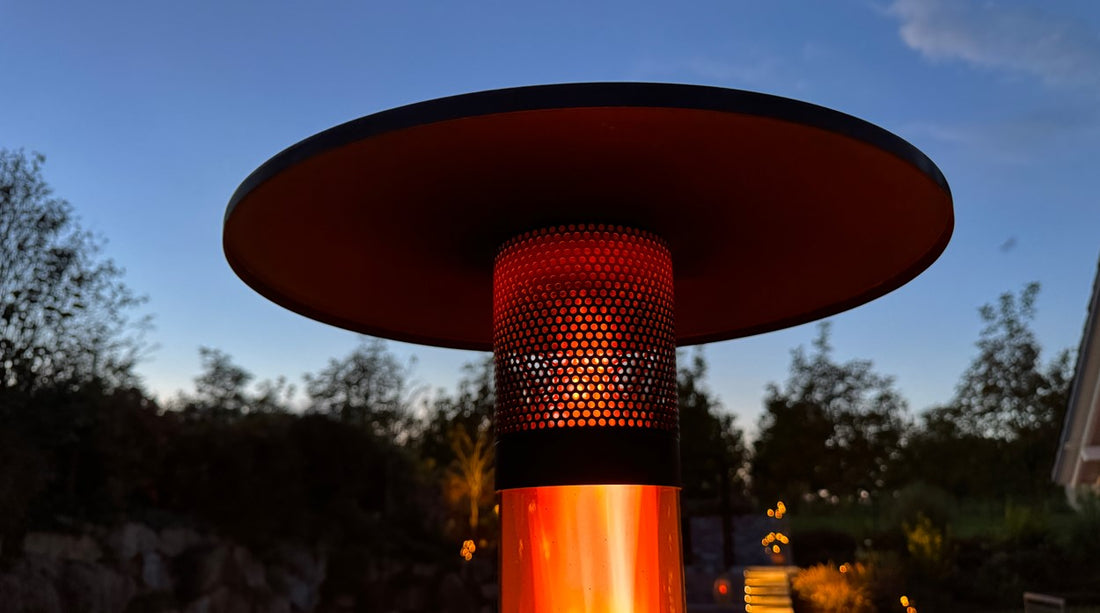
Why gas heaters are no longer needed
Share
In recent years, gas heaters, also known as "patio heaters," have provided pleasant warmth in many outdoor areas. But it is becoming increasingly clear that these devices are not only expensive, but also harmful to the environment and are even used illegally in many regions. In this context, more sustainable alternatives such as wood pellet heaters are becoming increasingly important.
1. Environmental pollution caused by fossil fuels
Gas heaters are based on fossil fuels that release CO2 when burned and thus contribute significantly to global warming. At a time when reducing greenhouse gas emissions is of the utmost importance, gas heaters are no longer a modern technology. The CO2 emissions from gas combustion pollute our environment and exacerbate the already tense climate situation.
2. Expensive operating costs compared to wood pellets
Gas is significantly more expensive to run than wood pellets. While fossil gas prices are steadily rising, wood pellets offer a more cost-effective alternative for both domestic and commercial use. In many cases, pellet heaters can be operated with significantly lower running costs, making them a more financially advantageous option in the long term.
3. Regional production and CO2 neutrality of wood pellets
Another big advantage of wood pellets is their origin. Pellets are often made from wood waste from regional production. This short transport distance not only protects the environment, but also supports the local economy. In addition, wood pellets are CO2-neutral, as the CO2 released during combustion was previously absorbed by the trees. In contrast, gas heaters continue to burden the carbon footprint, as gas is a fossil fuel whose CO2 emissions are added to the atmosphere.
4. Legal regulations and bans on gas patio heaters
In many countries, including Switzerland, outdoor heating is increasingly regulated. In many cantons, the use of radiant heaters that use fossil fuels such as gas is now prohibited. This is because the operation of such devices violates climate protection regulations. Nevertheless, gas patio heaters are often still sold and used illegally, which is both legally problematic and environmentally harmful.
5. Safety and harmlessness of wood pellet heaters
Compared to gas heaters, pellet heaters are also superior in terms of safety. Gas heaters are equipped with pressurized gas containers, which can be potentially dangerous if used improperly or if there are leaks. Wood pellet heaters, on the other hand, do not use pressurized gas containers, thus minimizing the risk of accidents. This makes them a safer choice, especially for use in public and busy areas.
6. Clean combustion without smoke development
Another advantage of pellet heaters is that they burn almost smokelessly. Unlike open fireplaces or fire bowls, where the smoke can be annoying and unpleasant, pellet heaters produce minimal emissions. Sparks fly upwards due to the high heat, which keeps the environment clean and odor-free. This allows users to enjoy the warmth without the unpleasant side effects of an open fire.
Conclusion: Sustainability and cost savings through pellet heaters
In summary, gas heaters are becoming increasingly obsolete these days. They are expensive to run, harmful to the environment and even banned in many regions. Wood pellet heaters, on the other hand, offer a cost-effective, safe and environmentally friendly alternative. With their regional origin, CO2 neutrality and low operating costs, they are the more sustainable choice for outdoor heating and an important step towards a more climate-friendly future.
